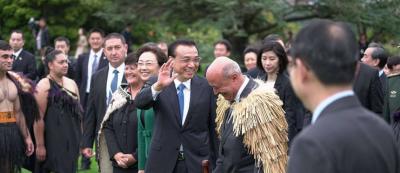China's trillion-dollar 'Belt and Road Initiative' is still in its early stages, but one expert says New Zealand shouldn't take too long to work out how we can benefit from the project. Sam Sachdeva reports.
Chinese investment is always a touchy subject in New Zealand politics - and that goes double in an election year.
It's no surprise then that ears were pricked during Premier Le Keqiang's visit earlier this year by the signing of a memorandum of agreement between New Zealand and China which could lead to millions more dollars flowing in through a Chinese strategy to lead on the world stage.
Yet while the Belt and Road Initiative has been around for several years, it is in many ways still a mystery.
Stephen Jacobi, executive director of the NZ China Council, has just returned from a trip to China to get a better appreciation of what the Belt and Road Initiative may mean for New Zealand.
The initiative was first pitched by Chinese President Xi Jinping during a 2013 visit to Kazakhstan as a way of improving transport links, trade ties and personal connections through a number of projects along ancient trade routes.
Since then, a number of infrastructure projects have been developed across Asia and elsewhere, with overall spending for the initiative possibly running into the trillions.
Paul Clark, a professor of Chinese at Auckland University and associate director of the New Zealand Contemporary China Research Centre, says Belt and Road is “very much part of the Chinese government’s rhetoric” as it looks to grow its economy.
“It has great promise I think in providing an outlet for Chinese industry and construction in particular to engage with Central Asian and other countries to use up surplus supply of construction people, workers and equipment and so forth.”
Widening belt
While the possibility of Chinese-funded road and rail has dominated much of the discussion in New Zealand, Jacobi says “the real play” in our corner of the world is less about infrastructure and more about connecting up with China through including the flow of goods, services and people.

